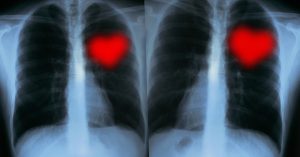Stress and Heart Disease: What You Can Do to Improve Your Heart Health
Working long hours, filling up free time, and taking on additional responsibilities is a way of life for Type A individuals everywhere. But when things get out of hand, when we don’t disconnect from news headlines or give ourselves a moment to breathe, we can get stressed out. If that stress becomes an everyday part of our lives, it can lead to serious health complications, especially with regard to heart health.
Below, we discuss how stress can lead to heart disease and what you can do to manage the stress in your life. We know that these are unprecedented times. But as a Tampa heart specialist can tell you, making even small changes to your routine can have long-lasting, positive effects on your heart health.
How Stress Leads to Heart Disease
Stress has a very real effect on the body. When we experience stress, our bodies respond with a fight-or-flight response. Stress hormones flood the body. Breathing speeds up. Blood pressure rises. This a natural response, but our bodies are not meant to be in a constant state of alarm. In the short-term, stress can cause headaches, body aches, and stomach pain. Over time, stress contributes to heart disease through high blood pressure and high cholesterol. Stress may even increase the risk of a heart attack. Consult a heart doctor in Tampa if you are concerned that you are at risk of having a heart attack.
Related: Identifying Women’s Heart Attack Symptoms
How someone copes with stress can also have a negative impact on their heart health. Smoking, drinking alcohol, eating poorly, and being inactive are all common ways of dealing with stress, but they also lead to high blood pressure and damaged arteries. Overcoming stress and preventing heart disease requires a more permanent solution.
Related: Identifying Women’s Heart Attack Symptoms
How someone copes with stress can also have a negative impact on their heart health. Smoking, drinking alcohol, eating poorly, and being inactive are all common ways of dealing with stress, but they also lead to high blood pressure and damaged arteries. Overcoming stress and preventing heart disease requires a more permanent solution.
Reducing Stress in Your Life
Managing stress in your life isn’t just good for your heart health, it’s good for your overall health. There are numerous tips to lower stress. Here are just a few:
• Exercising regularly
• Quitting smoking
• Reducing alcohol consumption
• Sleeping regularly
• Eating Healthily
Stress can also be reduced through relaxation techniques, such as yoga and meditation. Alternatively, a mental health professional can teach a person to better control their body’s response to stress. It’s important to find the stress reduction technique that works best for you. Related: 5 Reasons to Undergo a Stress Test
• Exercising regularly
• Quitting smoking
• Reducing alcohol consumption
• Sleeping regularly
• Eating Healthily
Stress can also be reduced through relaxation techniques, such as yoga and meditation. Alternatively, a mental health professional can teach a person to better control their body’s response to stress. It’s important to find the stress reduction technique that works best for you. Related: 5 Reasons to Undergo a Stress Test
Safeguarding Your Heart Health
In addition to the above tips, you can help prevent heart disease by visiting a heart doctor in Tampa. A heart doctor can lift the veil on your heart health by testing your blood, determining your blood pressure and cholesterol levels, and developing a treatment plan if needed. If you’re interested in a long-term solution, schedule a consultation with the team at Ascent Cardiology Group. Our cardiovascular screening and counseling services can detect early warning signs and help you reduce the stressors that lead to heart disease.
To consult a Tampa heart specialist from Ascent Cardiology Group, please request an appointment today.
Disclaimer: The contents of this website are for general educational purposes only. All content and media on the Ascent Cardiology Group website does not constitute professional medical advice nor is the information intended to replace the services of Ascent Cardiology Group or other qualified medical professionals. If you believe you are having a medical emergency, call 911 immediately.
The content, views, and opinions communicated on this website do not represent the views of Ascent Cardiology Group. Reliance on any information provided by this website is solely at your own risk. Although this website contains links to other medical websites, this is strictly for informational purposes. Ascent Cardiology Group is not responsible nor do they approve of the content featured on any third party linked websites referenced on this website.
The content, views, and opinions communicated on this website do not represent the views of Ascent Cardiology Group. Reliance on any information provided by this website is solely at your own risk. Although this website contains links to other medical websites, this is strictly for informational purposes. Ascent Cardiology Group is not responsible nor do they approve of the content featured on any third party linked websites referenced on this website.
More Resources

Stress and Heart Disease: What You Can Do to Improve Your Heart Health
Working long hours, filling up free time, and taking on additional responsibilities is a way of life for Type A

What is Nuclear Cardiology?
Nuclear cardiology is a subspeciality of general cardiology that involves the use of radioactive substances and advanced medical imaging modalities

Coronary Heart Disease: What Is It and How Is It Treated?
In addition to being the most common type of heart disease, coronary heart disease is the deadliest. In fact, it’s